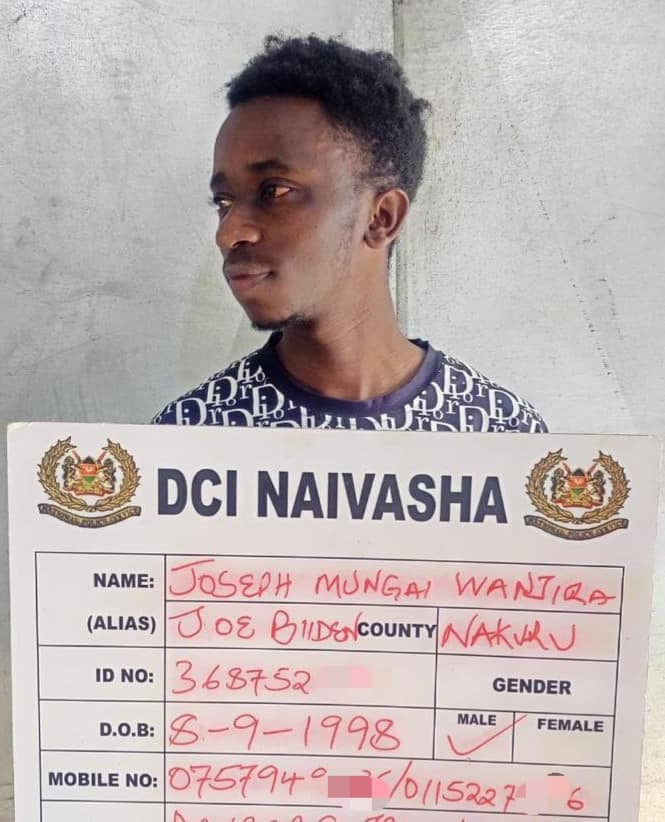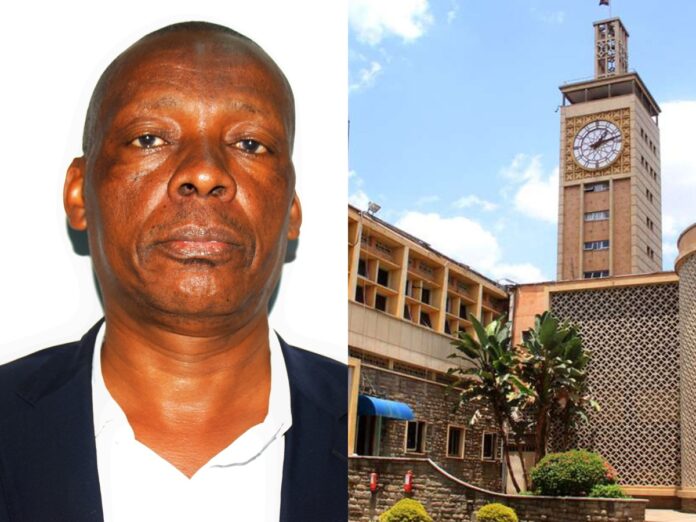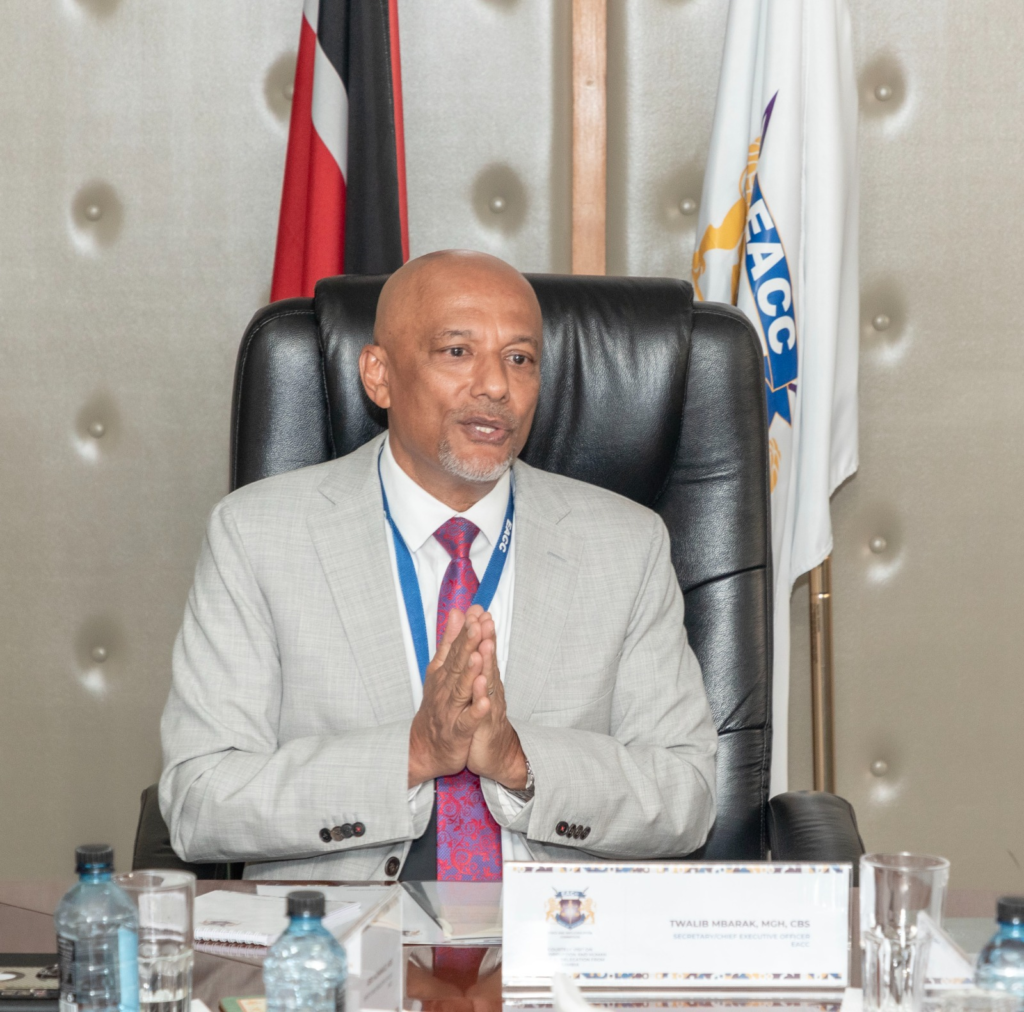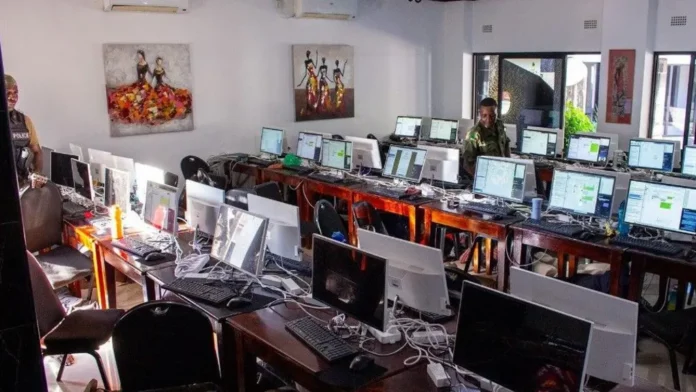Detectives from the DCI have arrested a 25-year-old robbery with violence suspect believed to have murdered the manager of Chandarama Supermarket located within Buffalo Mall in Naivasha on May 22, 2024.
In an update via the X platform on Wednesday, June 5, Joseph Mungai Wanjira was flushed out of his hideout within Naivasha town at 1 pm.
The suspect was captured on CCTV footage leaving the deceased’s house after the May 22 brutal murder and robbery.
According to DCI, workers at the supermarket had arrived at the Mall early that morning but after waiting up long enough, they decided to call the manager on duty, the late Mr Hassan Abdullatif Salim, to find out why he was taking too long to report to work.
“His phone went unanswered, prompting a few supervisors to check him out at his house. Shock struck when they were met with blood spots at the door, although the house was locked.
“Police in Naivasha were informed. They rushed to the scene, and upon forcing entry, found the body of the 38-year-old manager sprawled on the floor in a pool of blood, cold. Signs of struggle depicting an attack were evident, with various household items notably missing,” part of the statement by DCI read.
According to DCI, investigations were immediately launched and intelligence analysis gave away the prime suspect.
Following the arrest most of the items stolen from the deceased’s house including a TV set, a 6kg Pro Gas, a Samsung tablet, a hoodie branded NASA, and a blood-stained bag were recovered.
The suspect led detectives to the scene of the crime (the deceased’s house), retrieving the two murder weapons he had used (a kitchen knife and a piece of wood).
Further documentation of the scene has since been conducted and the suspect booked in Naivasha police cells pending arraignment for Robbery with Violence.




















